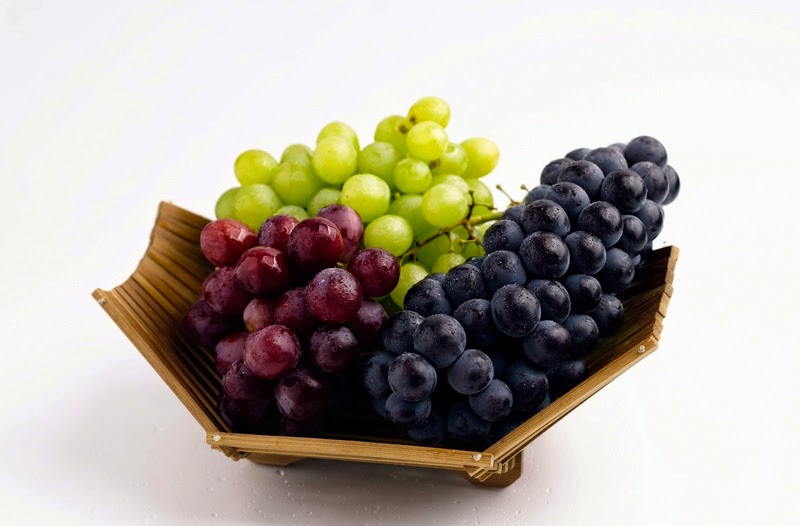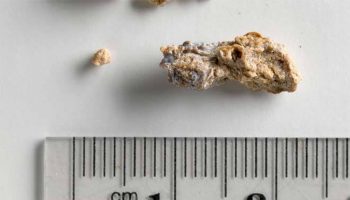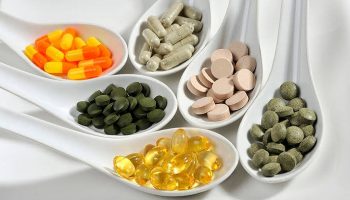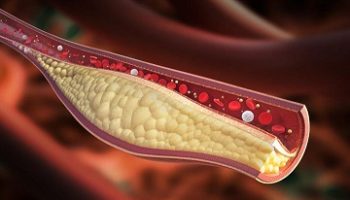GRAPES: THE MEDITERRANEAN GIFT
Consuming fruits and vegetables of all kinds has long been associated with a reduced risk of heart disease,diabetes, cancer and other conditions. Many studies have shown that increasing consumption of plant foods like grapes decreases the risk of obesity and overall mortality. Grapes also have some special components that make them even more essential to our health, giving them “super food” status. This is mostly attributed to their rich phytochemical content, most notably “reservatrol”. Resveratrol is a polyphenol antioxidant synthesized by the grape plant for anti fungal and defensive properties. Numerous research studies have demonstrated the health benefits of resveratrol. It lowers risk of cardiovascular disease by preventing lipid oxidation and it modulates levels of lipids and lipoproteins in the body. Resveratrol is also a potent antioxidant, which not only reduces oxidation, but also helps to strengthen other antioxidant substances in the body.
Reducing the risk of the following conditions:
Cancer prevention properties:
Grapes have been found to have strong anti-cancer properties due to the anti-inflammatory effect of resveratrol. It is particularly effective in reducing the chances of colorectal cancer and breast cancer. The anthocyanins and pro-anthocyanidins in grapes have properties of an anti-proliferate and can inhibit the growth of cancer causing agents. Grape juice not only prevents the risk of cancer but also suppresses the growth and propagation of cancer cells. The pigments contained in grapes enhance the overall immunity of the body to a wide range of diseases. The resveratrol found in red wine famous for heart health is a type of polyphenol found in the skins of red grapes.
(adsbygoogle = window.adsbygoogle || []).push({});
Heart Disease:
The flavonoid quercetin is a natural anti-inflammatory that appears to reduce the risk of
atherosclerosd protect against the damage caused by low-density lipoprotein (LDL)cholesterolin animal studies. Quercetin may have the additional bonus of anti-cancer effects; however more studies are needed using human subjects before these results can be confirmed.
*The high polyphenol content in grapes may also reduce the risk of cardiovascular disease (CVD) by preventing platelet build-up and reducingblood pressurevia anti-inflammatory mechanisms.
*The fiber and potassium in grapes also support heart health. An increase in potassium intake along with a decrease in sodium intake is the most important dietary change that a person can make to reduce their risk of cardiovascular disease, according to Mark Houston, MD, MS, an associate clinical professor of medicine at Vanderbilt Medical School and director of the Hypertension Institute at St Thomas Hospital in Tennessee.
*In one study, those who consumed 4069 mg of potassium per day had a 49% lower risk of death from ischemic heart disease compared with those who consumed less potassium (about 1000 mg per day).
*High potassium intakes are also associated with a reduced risk ofstroke, protection against loss of muscle mass, preservation of bone mineral density and reduction in the formation ofkidney stones.
High Blood Pressure:
As noted above, potassium has many benefits for the body. It may be that a low potassium intake is just as big of a risk factor in developing high blood pressure as a high sodium intake. Because of their high potassium content, grapes are recommended to those with high blood pressure to help negate the effects of sodium in the body.
According to the National Health and Nutrition Examination Survey, fewer than 2% of US adults meet the daily 4700 mg recommendation for potassium.
Also of note, a high potassium intake is associated with a 20% decreased risk of dying from all causes.
Constipation:
Eating foods that are high in water content like grapes, watermelon and cantaloupe can help to keep you hydrated and your bowel movements regular. Grapes also contain fiber, which is essential for minimizing constipation.
Diabetic neuropathy and retinopathy:
A few studies have shown promise that resveratrol can protect against diabetic neuropathy and retinopathy, conditions caused by poorly controlled diabetes where vision is severely affected. One study in which diabetic rats were treated with resveratrol for two weeks found that it reduced the effects of neural changes and damage associated with diabetic neuropathy.
Anti-Aging and Longevity Benefits:
Several grape phytonutrients may play a role in longevity and may provide us with anti-aging benefits. Best-studied in this area of health benefits is resveratrol (a stilbene phytonutrient presently mostly in grape skins, but also in grape seeds and grape flesh). Resveratrol has recently been shown to increase expression of three genes all related to longevity. (These three genes are SirT1s, Fox0s, and PBEFs.) Interestingly, some researchers have shown a parallel between activation of these longevity genes by resveratrol and activation by calorie-restricted diets.
Fatigue:
Light and white grape juice supplements the iron content in the body andprevents fatigue. Anemia is a real problem for many people, and eating grapes can help keep your iron and mineral levels balanced in the body. A lack of iron can make you sluggish, and your mind also doesn’t work as quickly, since iron is an essential mineral that impact a number of bodily functions. However, dark grape juice might not give an iron boost and may actually decrease iron levels. Drinking grape juice also provides a nearly instant energy boost.
Anti bacterial activity:
Red grapes have strongantibacterialand antiviral properties that can protect you from infections. They display strong antiviral properties against the polio virus and the herpes simplex virus. Studies have also shown that grape juice can tackle bacterial infections in the gut and other systems.
Prevention of cataracts:
Flavonoids present in grapes have antioxidants, which can reduce and fight the damage caused by free radicals. Free radicals cause things like the development of cataracts, as well as cardiovascular diseases, cancer, and various age-related problems. This is somewhat linked to macular degeneration, as they usually occur around the same time in life. Fortunately, antioxidants also have certain anti-aging qualities, which not only help you look younger, but also feel younger by staving off age-related conditions like cataracts.
Side Effects:
Bleeding conditions: Grape might slow blood clotting. Taking grape might increase the chances of bruising and bleeding in people with bleeding conditions. However, there are no reports of this occurring in humans.
Surgery: Grape might slow blood clotting. It might cause extra bleeding during and after surgery. Stop using medicinal amounts of grape at least 2 weeks before a scheduled surgery.
Tags :
Health Benefits of Grapes
previous article
TIPS TO SLEEP BETTER
next article
ANOINTING FOR BODY AND SOUL
The author Prince
Hi, I’m Prince.. a registered Dietitian, an avid reader and a passionate writer. I hope you enjoy my articles as much as I enjoy writing them






